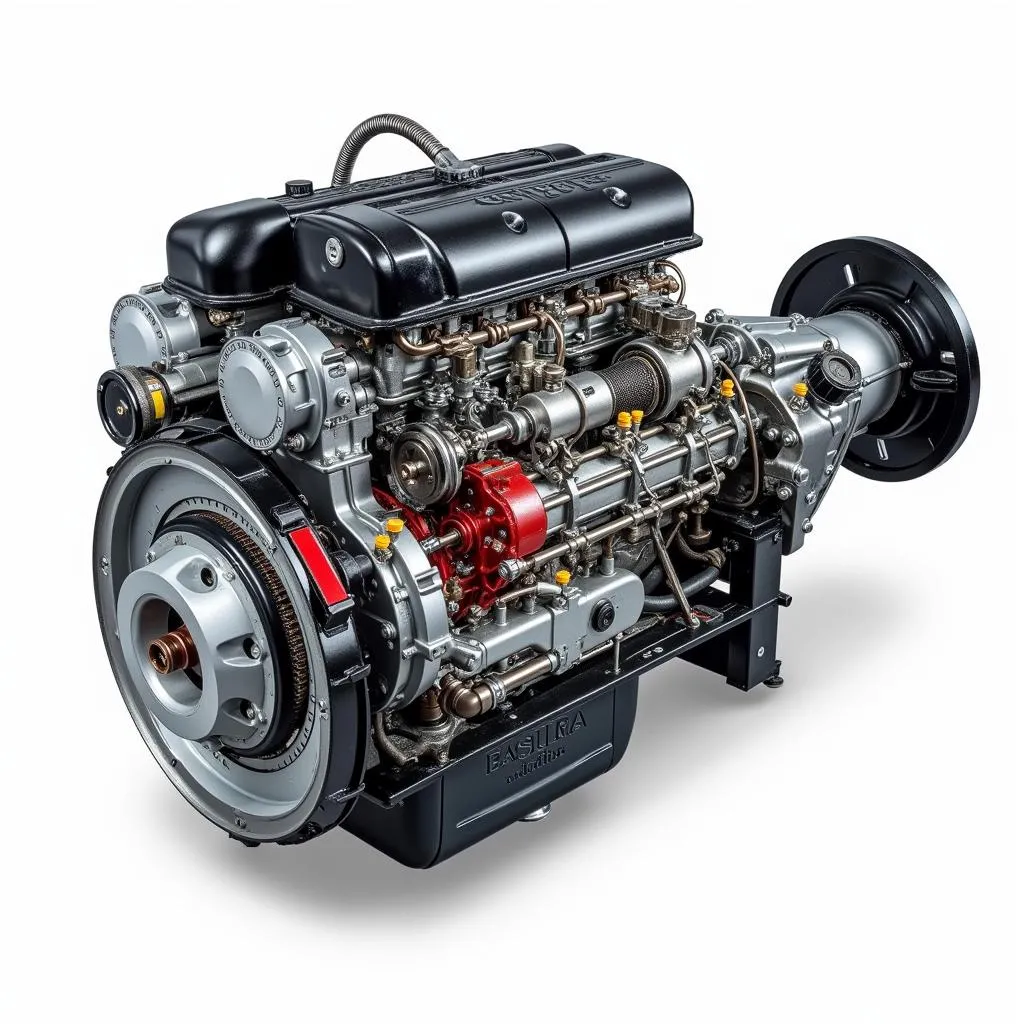The 0-60 mph time. It’s the benchmark that gets car enthusiasts’ hearts racing. But what is the Average Car 0-60 time, and what factors influence this number? Let’s delve into the world of acceleration and explore the variables that determine how quickly a vehicle can go from a standstill to highway speeds.
Unveiling the Average 0-60 Time
While the automotive landscape is vast and diverse, the average car 0-60 time hovers around the 7-second mark. This figure represents a general average across various vehicle types, from sedans to SUVs. Keep in mind that this is a broad generalization. Numerous factors can significantly influence a car’s acceleration, making it faster or slower than the average.
Factors That Influence 0-60 Times
A car’s 0-60 time isn’t determined by a single factor but rather by a complex interplay of elements. Here are some key players:
1. Engine Power: The engine is the heart of acceleration. A more powerful engine, measured in horsepower and torque, translates to quicker acceleration.
2. Transmission Type: The transmission plays a crucial role in delivering power to the wheels. Generally, cars with dual-clutch automatic transmissions (DCTs) achieve faster 0-60 times than those with traditional automatic or manual transmissions.
3. Vehicle Weight: Physics plays a significant role here. A heavier vehicle requires more power to accelerate at the same rate as a lighter one. This explains why sports cars, known for their lightweight construction, often boast impressive 0-60 times.
4. Aerodynamics: As a car gains speed, air resistance increases. A vehicle with sleek, aerodynamic design can cut through the air more efficiently, reducing drag and improving acceleration.
5. Tire Traction: Grippy tires are essential for efficiently transferring power to the road. High-performance tires provide better traction, allowing for faster acceleration without wheelspin.
 Close-up of car engine and transmission
Close-up of car engine and transmission
The Quest for Speed: From Average to Exceptional
While the average car 0-60 time might hover around 7 seconds, the automotive world is full of vehicles that shatter this benchmark. High-performance sports cars, with their powerful engines, lightweight designs, and advanced technologies, can achieve 0-60 times in a breathtaking 3 seconds or less.
On the other end of the spectrum, some vehicles prioritize fuel efficiency and practicality over raw acceleration. These cars might take over 10 seconds to reach 60 mph from a standstill.
Finding Your Sweet Spot
Ultimately, the “best” 0-60 time depends entirely on your individual needs and preferences. Are you seeking the adrenaline rush of a high-performance machine? Or do you prioritize fuel efficiency and a comfortable ride?
When considering a car’s 0-60 time, it’s essential to view it within the context of the vehicle’s overall purpose and intended use.
 Various cars on display
Various cars on display
Conclusion
The 0-60 mph time provides a glimpse into a car’s acceleration capabilities, with the average car clocking in around 7 seconds. However, this number is just one piece of the puzzle when evaluating a vehicle’s performance.
Factors such as engine power, transmission, weight, aerodynamics, and tire traction all contribute to a car’s acceleration prowess. By understanding these elements, you can make informed decisions and find the perfect vehicle that aligns with your driving style and requirements.
